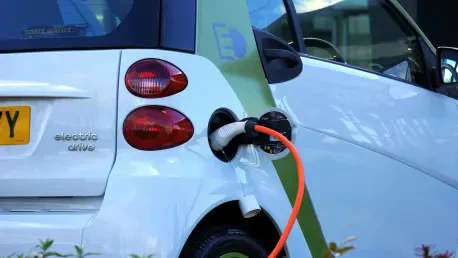The recent completion of the UK EV Battery Recycling Project represents a significant milestone in sustainable technology advancement. Emerging from the collaborative efforts of major industry players, academic institutions, and industry stakeholders, this project addresses the pressing issue of managing end-of-life electric vehicle batteries in an environmentally friendly manner. In an increasingly electrified world, robust recycling initiatives are pivotal in transitioning to more sustainable practices across the automotive sector.
A Glimpse into the Recovas Project’s Achievements
Spanning four years and involving numerous entities, including car manufacturers and recyclers, the Recovas project aimed to establish the UK’s first comprehensive circular economy for EV batteries. This endeavor highlighted the collaborative efforts needed to responsibly manage the disposal and repurposing of batteries nearing the end of their service lives. Significant investments, both financially and in human resources, were made during the project’s course. Notably, EMR Ltd’s infrastructure development in Birmingham allowed the processing of 2,000 tons of EV batteries annually, underscoring practical steps toward this shared sustainability goal.
The project involved multiple stakeholders, such as giants like BMW, Jaguar, Land Rover, and Bentley, who played a crucial role in creating guidelines for the automotive supply chain. These contributions aim to steer the industry toward designing future EVs with recycling and environmental considerations firmly implanted within their framework. This inter-industry collaboration has been instrumental in pushing boundaries and setting new standards in responsible battery management.
Technological Innovations and Advancements
Technological advancements forged within this initiative took center stage, showcasing developments with the potential to reshape the industry’s approach to battery management. Innovations like Autocraft Drivetrain Solutions’ mobile triaging unit promise more efficient recycling processes. Research conducted by the University of Warwick added further profundity, focusing on recovering precious metals from black mass and advancing battery handling expertise. Connected Energy implemented a robust business model for utilizing repurposed EV batteries for large-scale energy storage, displaying a feasible commercial path for second-life batteries.
Moreover, exploring metal recovery processes and conducting economic analyses by the UK Battery Industrialisation Centre provided essential insights into maximizing the lifecycle and economic viability of recycled batteries. Through strategic engagement in these technologies, the project has built a foundation for continued industry evolution, marking the transition toward smarter, more sustainable practices.
Recognized Achievements and Industry Impact
The project’s groundbreaking strategies and implementations earned acknowledgment and accolades, such as the 2025 Resource and Waste Management Partnership of the Year award. Recognition from prestigious platforms signifies its tangible accomplishment in bolstering sustainable practices and pioneering circular economies. Notwithstanding the project’s conclusion, its collaborative proposals and outcomes continue to ripple throughout the industry, promising sustained efforts and further advancements.
Consortium interactions have established potential paths for ongoing collaborations, fostering innovation and integrating diverse perspectives to enhance the sustainability framework for EV battery management. The project’s completion serves as an inspiring narrative of the power of combined efforts toward transforming industry standards and promoting environmentally conscious approaches.
Significance and Future Directions
The impact of the Recovas project extends beyond its immediate achievements, symbolizing a committed shift toward sustainable battery management in the UK. These efforts have laid the groundwork for future initiatives, echoing the potential for broader industry transformations. Future collaborations could build upon this foundation, integrating insights and exploring new avenues in battery recycling and repurposing to enhance industry sustainability further.
Looking ahead, the successful completion of this project offers a blueprint for industries globally, illustrating how intertwined expertise and collaborative partnerships can facilitate meaningful change. By establishing a feasible circular economy, this project underscores the essential steps required for evolving sustainability standards, making it a cornerstone in advancing technology practices.









